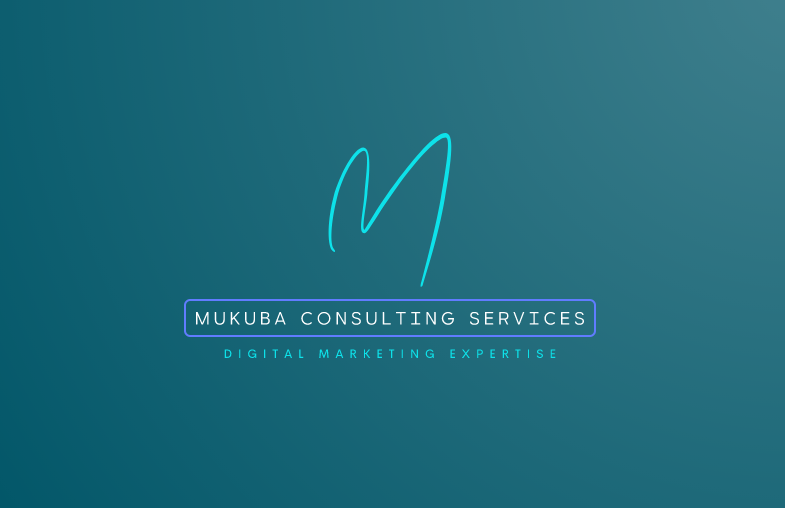Facebook Ads have become an essential tool for businesses to reach their target audience effectively.
With the advancement of technology, Artificial Intelligence (AI) has emerged as a powerful ally in optimizing and enhancing the effectiveness of Facebook Ads campaigns.
In this article, we will explore the intersection of Facebook Ads and AI, highlighting how AI is revolutionizing the way businesses advertise on the world’s largest social media platform.
Personalized Targeting with AI
In the digital era, Facebook Ads have emerged as a game-changer for businesses, providing an unparalleled platform to connect with their target audience.
With billions of active users, Facebook offers an immense opportunity to businesses looking to promote their products or services.
However, simply running ads on Facebook is not enough to achieve optimal results. This is where Artificial Intelligence (AI) comes into play, revolutionizing the way businesses advertise on the platform.
Personalized targeting is a key aspect of successful advertising campaigns, and the integration of Artificial Intelligence (AI) has significantly enhanced this capability.
AI algorithms have revolutionized how businesses can reach their target audience with highly tailored and relevant advertisements on platforms like Facebook.
AI algorithms analyze vast amounts of user data, including demographics, interests, behaviors, and online activities. By leveraging this data, businesses can create highly personalized ad campaigns that resonate with their target audience on a deeper level.
With AI-powered personalized targeting, businesses can segment their audience based on specific criteria. For example, they can target users based on their age, location, gender, interests, and even their previous interactions with the brand.
This level of granularity ensures that the ads are shown to the most relevant individuals who are more likely to engage with and respond positively to the content.
Furthermore, AI algorithms continuously learn and adapt based on user responses and interactions. They identify patterns and preferences to refine the targeting criteria over time, ensuring that the ads become increasingly personalized and effective.
This dynamic optimization process helps businesses to deliver more impactful messages that align with the individual preferences of their target audience.
By leveraging AI-powered personalized targeting, businesses can achieve several advantages. First, they can maximize the reach and impact of their advertising budget by ensuring that their ads are displayed to the right people at the right time. This reduces wasteful spending on irrelevant impressions and increases the likelihood of engagement and conversions.
Second, personalized targeting enhances the overall user experience.
When users see ads that are relevant to their interests and needs, they are more likely to engage with them and consider the advertised products or services.
This personalized approach creates a positive brand experience and fosters a stronger connection between the business and its target audience.
Moreover, personalized targeting enables businesses to tailor their messaging and creative content to specific segments of their audience.
By understanding the unique preferences and pain points of different groups, businesses can create more compelling and persuasive ads that resonate with each segment.
This level of customization improves the effectiveness of the ads and boosts the chances of generating desired actions, such as clicks, purchases, or sign-ups.
It is important to note that while personalized targeting with AI offers significant benefits, businesses must also adhere to ethical considerations.
Respecting user privacy and data protection is crucial in building trust and maintaining a positive brand image.
Transparency and consent should be at the forefront of any personalized targeting strategy, ensuring that users understand and have control over the data used for ad targeting purposes.
AI-Powered Ad Creation and Optimization
Artificial Intelligence (AI) has revolutionized the process of ad creation and optimization, making it more efficient and effective for businesses.
With the help of AI algorithms, businesses can generate compelling ad content and continuously optimize their campaigns to achieve better results on platforms like Facebook.
AI-powered tools have simplified the task of ad creation by automating the process. These tools can generate ad copies, images, and videos based on predefined parameters and user preferences.
By leveraging AI, businesses can save time and effort in developing creative content, as the algorithms can analyze data and generate ads that align with the brand’s messaging and objectives. This allows businesses to focus on other critical aspects of their marketing strategy.
Furthermore, AI algorithms play a crucial role in optimizing ad campaigns in real-time. They analyze a wide range of data, including user interactions, performance metrics, and market trends, to make data-driven decisions and adjustments. For example, AI can analyze ad placement, bidding strategies, and budget allocation to ensure that resources are allocated optimally for maximum impact.
Through continuous optimization, AI algorithms can adapt and refine campaigns to improve their performance over time. By analyzing user responses and feedback, the algorithms identify patterns and insights that guide decision-making.
This iterative process allows businesses to make informed adjustments and fine-tune their ad campaigns for better engagement, click-through rates, and conversions.
The power of AI in ad optimization lies in its ability to process and analyze vast amounts of data at a speed and scale that humans cannot achieve. AI algorithms can uncover valuable insights and trends that may go unnoticed by manual analysis.
This helps businesses to identify opportunities, target specific audience segments, and refine their messaging to ensure it resonates with their target audience.
Moreover, AI-powered ad optimization is not limited to a single campaign but can be applied across multiple campaigns simultaneously.
This scalability allows businesses to manage and optimize their entire ad portfolio effectively, ensuring consistent performance and maximizing return on investment (ROI).
It is important to note that while AI can automate and optimize ad creation and optimization processes, human involvement and creativity are still essential.
Businesses should provide strategic guidance, input, and quality control to ensure that the AI-generated ads align with their brand identity and marketing objectives.
Humans play a critical role in setting the overall campaign strategy, defining the target audience, and reviewing the AI-generated content before it goes live.
Facebook’s AI Algorithms and Machine Learning
Facebook, as one of the leading social media platforms, has made significant advancements in the field of Artificial Intelligence (AI) and machine learning.
Through its robust AI algorithms, Facebook has been able to enhance various aspects of its platform, including content personalization, ad targeting, and user experience.
Facebook’s AI algorithms rely on machine learning techniques to analyze vast amounts of data generated by its users. These algorithms are designed to understand user behaviors, preferences, and interactions in order to provide a more personalized and engaging experience.
One of the primary applications of Facebook’s AI algorithms is content personalization. These algorithms analyze user data, such as past interactions, likes, comments, and browsing behavior, to curate a customized feed of content.
By leveraging machine learning, Facebook can predict the type of content that users are most likely to engage with and display it prominently on their newsfeeds. This personalized approach enhances user satisfaction and keeps them engaged on the platform for longer periods.
In addition to content personalization, Facebook’s AI algorithms play a crucial role in targeted advertising. By analyzing user data, such as demographics, interests, and online activities, these algorithms can create highly tailored ad campaigns that reach the most relevant audience segments. This level of precision in ad targeting improves the effectiveness of advertising campaigns and increases the chances of conversions for businesses.
Facebook also utilizes machine learning algorithms for image and speech recognition. Through deep learning techniques, the platform can accurately recognize and tag objects, faces, and locations in photos, making it easier for users to search and organize their visual content.
Additionally, Facebook employs speech recognition algorithms to enable features such as auto-captioning in videos, enhancing accessibility and user engagement.
Leveraging AI to Improve Ad ROI
Artificial Intelligence (AI) has emerged as a powerful tool for businesses to enhance their advertising efforts and maximize their return on investment (ROI). By leveraging AI algorithms, businesses can optimize various aspects of their ad campaigns to improve effectiveness, increase conversions, and ultimately drive higher ROI.
One of the key ways AI improves ad ROI is through advanced targeting capabilities. AI algorithms analyze vast amounts of data, including user demographics, interests, behaviors, and online activities, to identify patterns and insights.
By leveraging this data-driven approach, businesses can refine their target audience and ensure that their ads are reaching the most relevant users who are more likely to engage with and convert through their campaigns.
This targeted approach minimizes wasteful spending on irrelevant impressions and increases the chances of driving conversions, thereby improving the overall ROI.
AI also plays a crucial role in ad optimization and campaign management. These algorithms continuously analyze performance metrics, user interactions, and market trends to make real-time adjustments and optimizations.
AI algorithms can automatically adjust campaign parameters such as ad placement, bidding strategies, and budget allocation based on data-driven insights.
This dynamic optimization ensures that the ads are delivered to the most receptive audience segments at the optimal times, maximizing the impact of the ad spend and improving the ROI.
Another way AI enhances ad ROI is through predictive analytics. AI algorithms can analyze historical campaign data, user behavior patterns, and market trends to predict future outcomes.
This enables businesses to make informed decisions about budget allocation, bidding strategies, and campaign optimizations. By leveraging predictive analytics, businesses can allocate their resources more effectively and proactively optimize their campaigns to maximize ROI.
Moreover, AI can automate the process of monitoring and managing ad campaigns, saving time and resources for businesses. AI algorithms can monitor performance metrics, detect anomalies, and alert advertisers of any potential issues that may impact ROI.
This proactive monitoring allows businesses to address issues promptly and make necessary adjustments to maintain campaign effectiveness.
The Importance of Monitoring and Fine-tuning AI Algorithms
In the realm of Artificial Intelligence (AI), monitoring and fine-tuning AI algorithms are crucial steps for ensuring optimal performance and avoiding potential issues.
As businesses increasingly rely on AI algorithms for various tasks, including advertising, it becomes essential to understand the importance of actively monitoring and fine-tuning these algorithms.
Performance Optimization:
Monitoring AI algorithms allows businesses to track their performance and identify areas for improvement.
By analyzing key metrics and performance indicators, such as ad engagement, click-through rates, and conversions, businesses can assess the effectiveness of their AI-powered advertising campaigns.
Monitoring enables businesses to identify any anomalies, trends, or patterns that may require adjustments or optimization to enhance campaign performance and achieve better results.
Adaptation to Changing Conditions:
Market dynamics, user behaviors, and trends can change rapidly. By actively monitoring AI algorithms, businesses can stay informed about these changes and adapt their strategies accordingly.
AI algorithms should be able to adapt to evolving user preferences and market conditions to ensure that advertising campaigns remain relevant and effective. Regular monitoring helps identify shifts in user behavior, emerging trends, or changes in the competitive landscape, allowing businesses to make data-driven decisions and adjust their AI algorithms to align with the new conditions.
Mitigating Bias and Ethical Considerations:
AI algorithms can inadvertently perpetuate biases present in the data used for training. Monitoring helps identify and mitigate potential biases that may impact the fairness and inclusivity of advertising campaigns.
By closely monitoring the algorithm’s outputs and analyzing the results, businesses can detect and address any biases or ethical concerns that may arise. This ensures that the AI algorithms are aligned with the organization’s values and ethical standards, enhancing transparency and accountability.
User Experience and Feedback:
Monitoring AI algorithms provides valuable insights into the user experience and allows businesses to gather feedback from users. By analyzing user interactions, feedback, and sentiment analysis, businesses can identify areas where improvements can be made.
Monitoring helps businesses understand how users perceive and engage with AI-generated content, enabling them to make adjustments and fine-tune the algorithms to enhance the user experience. Incorporating user feedback in the fine-tuning process helps ensure that the AI algorithms deliver the desired outcomes and meet user expectations.
Continuous Learning and Optimization:
Fine-tuning AI algorithms is an ongoing process that allows businesses to continuously improve their performance. By monitoring and analyzing data generated by the AI algorithms, businesses can identify patterns, trends, and insights that can inform iterative improvements.
Fine-tuning involves adjusting parameters, retraining models, or incorporating new data to optimize the algorithms’ performance. This iterative process ensures that the AI algorithms remain up-to-date, adaptive, and aligned with the business objectives.




[…] Facebook pages are a great way for businesses and organizations to establish an online presence and connect with their target audience. However, maintaining a Facebook page also comes with the responsibility of following Facebook’s rules and policies. […]